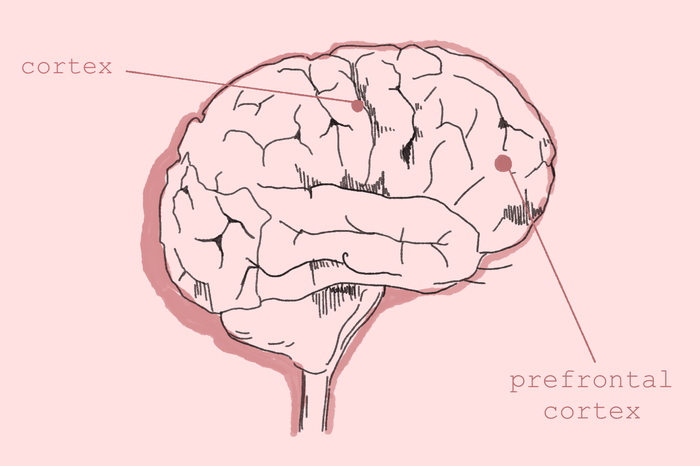Vitamin C(ambridge)
Lucy George discusses whether or not multi-vitamins are going to rescue us during term-time

For many Cambridge students, term time is often characterised by heightened stress levels, countless hours in the library, and a lack of quality sleep. The importance of taking daily multivitamins seems even greater in the aftermath of the exam period – where May Week events take priority over rest and healthy eating – but do these dietary supplements contribute any real benefits to our overall health? Despite the plethora of multivitamin brands claiming to support cognitive function, provide immune support and reduce fatigue, the evidence as to whether daily multivitamins truly meet these claims remains varied.
One popular claim on the label of multivitamins is that they supposedly ‘enhance cognitive performance’. While a scientific review investigating this claim suggested that they do show some improvement in immediate free recall memory – remembering information immediately after it’s presented – general cognition, reasoning abilities and mental speed show no significant improvement with vitamin supplements.
“There is no evidence that multivitamins reduce fatigue”
However, a recent study has pointed towards the role of multivitamins in slowing cognitive decline in older adults. Over the course of two years, adults over 60 taking daily multivitamins showed a significantly slower decline in cognitive abilities, such as attention and long-term memory, than those taking a placebo. The science behind the positive effects of multivitamins on memory is poorly understood. However, it’s known that a deficiency in vitamin B1 in chronic alcoholics can lead to Korsakoff syndrome, where damage to multiple brain regions is associated with memory loss and a limited capacity for learning. Moreover, B group vitamins can lower blood levels of homocysteine – an amino acid naturally produced by the body - which may provide the benefits observed in recall memory, given the correlation between high homocysteine levels and the development of dementia.
What about the link between multivitamins and reducing fatigue? Although one of the most popular claims of vitamin brands is to improve energy levels and combat tiredness, a recent scientific study concluded that there is no evidence to suggest that regular multivitamin consumption reduces fatigue. A likely explanation for this is that the mechanisms behind fatigue are complex, with hormone imbalances, chronic inflammation and stress being just some of the interacting factors contributing to fatigue alongside vitamin deficiencies.
“Half of UK adults are deficient in vitamin D”
This is not to say that vitamin consumption alone is incapable of reducing fatigue. With 49.5% of UK adults deficient in vitamin D – particularly in the winter months – it’s generally recommended to take daily vitamin D supplements when sunlight provides a lack of it, to regulate levels of fatigue while supporting muscle function. Unfortunately, for those turning to coffee as a remedy for tiredness during lectures, caffeine is known to interfere with the absorption of vitamin D in the body, perhaps by reducing the amount of vitamin D receptors present on the surface of bone cells. Moreover, the diuretic effect of caffeine, meaning more urine is produced, can lead to an increase in vitamin D leaving the body.
And, is there any evidence to support the role of multivitamins in reducing the risk of certain diseases? Scientific studies have shown no significant association between daily vitamin supplements and a reduced risk of death from cardiovascular disease, coronary heart disease or stroke. There is also little evidence to suggest that multivitamins reduce the risk of cancer, and concerningly, a slightly higher risk of prostate and lung cancer was observed in men who took daily supplements in a study investigating their effects on cancer risk. The exception to this is colon cancer, which showed a decreased risk in both men and women taking daily multivitamins as part of the study – perhaps due to the roles of vitamin C and E in reducing the oxidative stress linked to inflammation and colon cancer.
After weighing up all of the evidence, is there any point in persisting with taking daily multivitamins? While they’re unlikely to provide a boost in memory, improve fatigue or reduce the risk of cardiovascular disease, it’s important to highlight that most of these studies were conducted in individuals who obtained their daily nutritional requirements from a balanced diet. The hectic nature of term time may cause many students to turn to fast food and instant noodles in lieu of healthy meals, posing the risk of vitamin deficiencies. There is certainly little harm in using multivitamins as an aid during stressful times of year – just be wary of the supposed benefits.
 Comment / College rivalry should not become college snobbery30 January 2026
Comment / College rivalry should not become college snobbery30 January 2026 News / Downing Bar dodges college takeover31 January 2026
News / Downing Bar dodges college takeover31 January 2026 News / Cambridge for Palestine hosts sit-in at Sidgwick demanding divestment31 January 2026
News / Cambridge for Palestine hosts sit-in at Sidgwick demanding divestment31 January 2026 Science / Meet the Cambridge physicist who advocates for the humanities30 January 2026
Science / Meet the Cambridge physicist who advocates for the humanities30 January 2026 Features / Are you more yourself at Cambridge or away from it? 27 January 2026
Features / Are you more yourself at Cambridge or away from it? 27 January 2026









